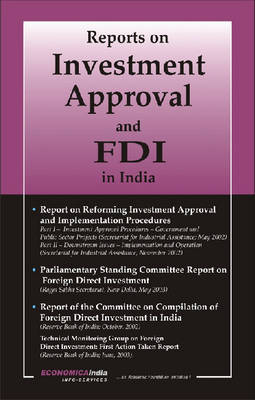Foreign Direct Investment (FDI) today is seen as an instrument to facilitate and support domestic investment for achieving a higher level of economic development, since it benefits both the domestic industry as well as the consumer, by providing opportunities for technological upgradation, access to global managerial skills and practices, optimal utilisation of human and natural resources, making industry internationally competitive, opening up export markets, providing backward and forward linkages and access to international quality goods and services. In the wake of current era of globalisation a transnational economic regime has emerged. With the establishment of a global economic order in the form of World Trade Organisation (WTO), the nations of the world have moved towards integrating their economies. The economic activities in any country need substantial investments and the FDI tends to bridge the investment-saving gap to achieve sustained growth. Besides the long-term additional capital that it brings in, FDI also tends to facilitate upgradation and transfer of technology and introduction of modern production and management practices. It has been observed that liberalization of the economic policy and changes in the structure of the economy has not translated fully into attracting greater investments due to a variety of reasons. Existing procedures of project formulation, appraisal and approval particularly for government projects, inadequacies in the existing management system and inadequate skills in project formulation, appraisal and management are some of the major reasons behind delays in the investment approvals and implementation of projects.
- ISBN13 9788171883370
- Publish Date 30 September 2003
- Publish Status Active
- Publish Country IN
- Imprint Academic Foundation
- Format Hardcover
- Pages 348
- Language English
